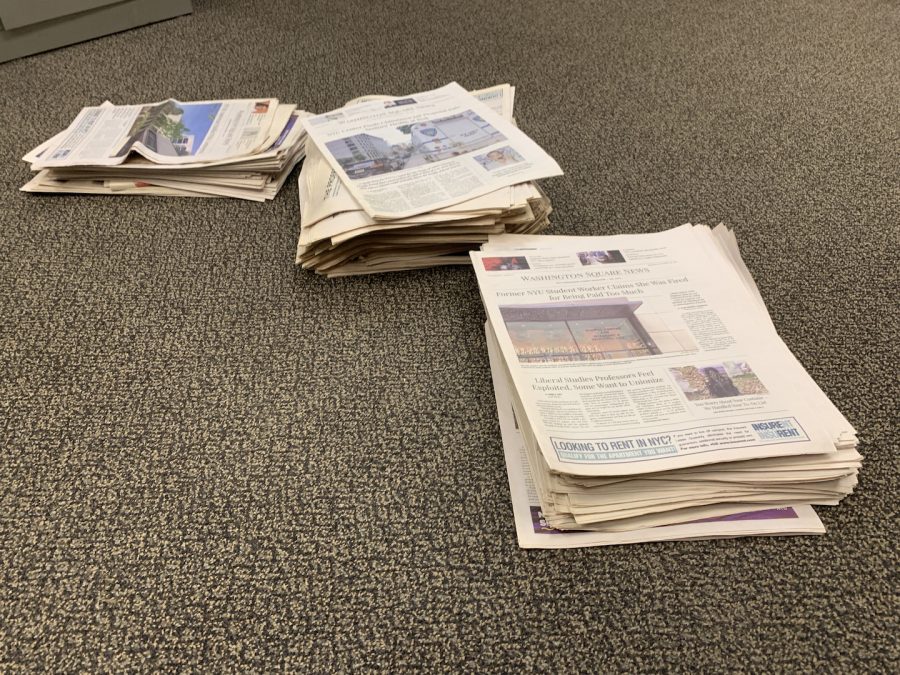Opinion: NYU should offer free local news subscriptions
NYU should sponsor free digital subscriptions to local news outlets for the university community, just as it does with The New York Times and Wall Street Journal.
NYU is partnering with the Wall Street Journal and the New York Times to bring free subscriptions to students. They should work to extend free subscriptions to local news outlets as well. (Staff Photo by Jake Capriotti)
October 8, 2021
On Sept. 29, NYU announced its partnership to offer free digital New York Times and Wall Street Journal subscriptions to students, staff and faculty. Given the necessity of an informed public, providing subscriptions to two major newspapers was a commendable step in promoting accessibility to journalism. Such an initiative, however, should also extend to local publications. By purchasing subscriptions to local papers, NYU can support the vital integration of local New York City sources into our media diets.
NYU’s choice to focus on purchasing from major newspapers was a predictable move. As national publications dominate the market, local news is on the decline. The rise in social media usage and the fall of the traditional newsroom business model has left thousands of local papers with shuttered doors or reduced operations. Such cutbacks have left over 65 million Americans stranded in counties with only a single local paper or none at all.
Some may think that New York City, a global media capital, would have avoided this issue. However, layoffs and closures have left crucial holes in the city’s local coverage.
Research conducted by Columbia University’s Tow Center for Digital Journalism revealed underreporting on courthouses, healthcare, climate change and real estate. Inadequate coverage is even more pronounced in the outer boroughs of Brooklyn, Queens and Staten Island. The latter is only covered by a single borough-level publication.
Such disparities in coverage only exacerbate journalistic underrepresentation across the lines of class, race and ethnicity. Wealthier municipalities are often characterized by greater quantity and quality of local reporting. A case study by the Center for Cooperative Media also found that areas concentrated with Hispanic residents are most likely to be news deserts.
As a student body, we would all benefit from the university’s support in diversifying our media consumption with local coverage that empowers underrepresented voices. The absence of local news dismantles opportunities for the already marginalized to speak their stories and perpetuates ignorance of the city we inhabit.
NYU purchasing subscriptions to local newspapers would also provide a much-needed cash infusion to these struggling publications. Over the past 15 years, the number of journalists who cover local issues has been halved, largely due to budget constraints. By supporting local journalism, NYU would provide a financial boost that could help local outlets revitalize their coverage.
The societal necessity of local news has been widely substantiated. Insufficient local coverage has been associated with increased corruption, weakened municipal finances, lower turnouts in state and municipal elections, and general disengagement from local democracy. These effects have only aggravated national concerns about political polarization and partisan coverage.
As a school that commits itself to prioritizing diversity, supporting social mobility and embracing an urban identity, NYU must support local news along with national publications. By supporting a market plagued by financial struggles, NYU has the opportunity to demonstrate its commitment to its values. Whether the university establishes a referendum to select local publications or consults publicly compiled lists of local outlets, NYU must sponsor local news subscriptions.
Contact Michelle Han at [email protected].

























































































































































